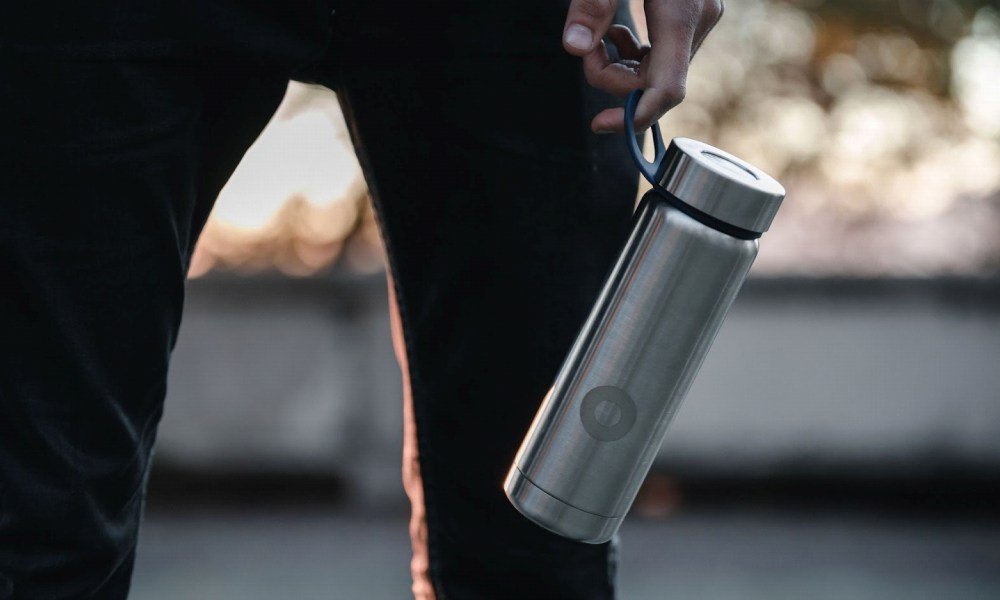A growing body of evidence suggests that the low-salt movement’s founding theories are also invalid from a scientific standpoint. It is important to consume enough salt and electrolytes.
Electrolytes in your body might be lost if you sweat or urinate excessive fluid. Dehydration is a major contributor to this electrolyte imbalance, leading to headaches, lethargy, sleepiness, irritability, and even a loss of attention.
Consequently, restoring electrolyte balance in your body might aid in giving you your energy back. Sports drinks are typically carried for lengthy runs since most runners know they need to replenish electrolytes lost via sweat.
The most well-known member of the group is sodium, both for its role as an essential component of sweat and its overabundance in the typical American diet.
The Difference Between Hydration And Electrolyte Hydration

Due to the addition of minerals like salt and potassium, electrolyte water differs from the drinking of tap water. This category of beverages includes juices, coconut water, and sports drinks.
Compared to choices like oral rehydration treatments, many of these beverages are less efficient. This is because they have higher added sugars and sweeteners but less salt.
Oral rehydration remedies, such as those suggested by the World Health Organization, are superior. A specific mineral ratio, including sodium and potassium, is present in oral rehydration solutions to assist battle dehydration.
To provide the correct quantity of minerals the body requires to operate, the precise quantities of each mineral are created to maximize the sodium-glucose cotransport system.
Electrolyte Drinks Are Not Limited To Athletes
It’s a popular misconception that electrolyte beverages are just for athletes. However, everyone may consume these electrolyte nutrient-rich beverages, which can refuel your energy bar most significantly.
Due to their intense training regimens and muscular use, athletes frequently ingest electrolyte beverages to replenish their electrolyte levels.
The electrolyte drinks’ quick-acting composition meets their requirements. It may, however, be ingested by anybody.
Drinks are a fantastic source of electrolytes, which may alleviate nausea and weariness and instantly relieve muscular cramps and migraines.
They can also regulate the pH level of the body. Electrolyte hydration is a fantastic way to replace your body’s electrolytes and keep you hydrated all day.
Replacing Electrolytes In The Body
Our bodies themselves tightly control the electrolyte balance. Therefore, you can consume a sports drink or add an electrolyte combination to your water while exercising. Sports drinks come in various salt contents, but they are best for those with high sodium levels.
You may need to consume anything from 300 milligrams to 1,000 milligrams every hour, depending on your sweat rate. Coconut water serves as a great way to consume electrolytes.
Eat 20 to 24 ounces of food and drink for the next two hours for every pound of weight lost during a run. To replace electrolytes after a strenuous workout, add salt to your recovery meal or snack.
Other salty food choices include tomato juice, bread, and cereals. Many protein drinks also include sodium.
Electrolyte Hydration During Sport Performances
Sports beverages with added electrolytes can aid athletes by replacing the water, electrolytes, and energy they lose while exercising. Along with electrolytes, sweat also includes minor quantities of potassium, calcium, magnesium, and sodium, which are important electrolytes.
If you tend to sweat a lot, exercise for more than one hour, or are in a hot climate. Sports drinks are advised above plain water to restore fluid and electrolytes.
To begin the exercise, hydrated and with normal plasma electrolyte levels is the aim of prehydrating. Drinking while exercising is to avoid excessive electrolyte shifts and dehydration. Body weight measurements taken before and after exercise can be used to assess each person’s perspiration rates. In addition, electrolyte- and carbohydrate-containing drinks can be more advantageous during exercise than water alone.
Electrolyte Hydration To Prevent Heat Strokes
When the body’s temperature-regulating mechanism is overworked, people get sick from being in the heat. Sweating is the body’s regular cooling method, but sometimes it’s not enough.
A person’s body temperature quickly increases in such circumstances. In addition, the brain or other important organs may be harmed by extremely high body temperatures.
In hot conditions, the body’s cooling system may start to malfunction, which might cause your body temperature to dangerously high levels.
Limiting the time you spend in the heat is the key to avoiding heat-related diseases. It’s crucial to consume sufficient fluids and electrolytes to keep your body cool. Avocados serve as a great source of natural and organic electrolyte hydration.
Water And Electrolyte Hydration
If you’re exercising for more than an hour or feeling sick with vomiting or diarrhea, think about drinking anything with added electrolytes.
If you’re not doing a sport, ordinary water will suffice to hydrate you daily.
Almost all bodily processes require water, including the transportation of nutrients, body temperature control, and waste and pollutants removal.
Also Read: Easy Ways You Can Increase Your Body’s Energy Levels
















